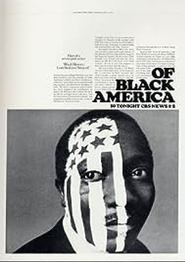The Heritage of Slavery - Of Black America
• •
News documentary from 1968 hosted by George Foster, exploring the legacy of oppression that remains over 100 years after the abolition of that peculiar institution. In Part 1, Foster visits Charleston, SC, and speaks with both descendants of slaves and slave owners. The cameras capture a sermon by Rev. Henry Butler of the Mother Emmanuel AME Church (where Denmark Vesey planned an unsuccessful slave revolt in 1822 and Dylan Roof would later kill 9 church members in 2015). In Part 2, the cameras go to Mississippi to speak with former sharecroppers and political activist FANNIE LOU HAMER. In the final segment, we travel to Chicago, where Prof. JAMES TURNER and activist CALVIN LOCKRIDGE educate young people about revolution. Ebony Magazine editor and historian LERONE BENNETT offers a poignant analogy to describe the times we are in today.
News documentary from 1968 hosted by George Foster, exploring the legacy of oppression that remains over 100 years after the abolition of that peculiar institution. In Part 1, Foster visits Charleston, SC, and speaks with both descendants of slaves and slave owners. The cameras capture a sermon by Rev. Henry Butler of the Mother Emmanuel AME Church (where Denmark Vesey planned an unsuccessful slave revolt in 1822 and Dylan Roof would later kill 9 church members in 2015). In Part 2, the cameras go to Mississippi to speak with former sharecroppers and political activist FANNIE LOU HAMER. In the final segment, we travel to Chicago, where Prof. JAMES TURNER and activist CALVIN LOCKRIDGE educate young people about revolution. Ebony Magazine editor and historian LERONE BENNETT offers a poignant analogy to describe the times we are in today.
Hapụ: Aug 13, 1968
Oge ojiri gaa: 54 Nkeji
Asụsụ:
.Lọ nka:
Mba:





